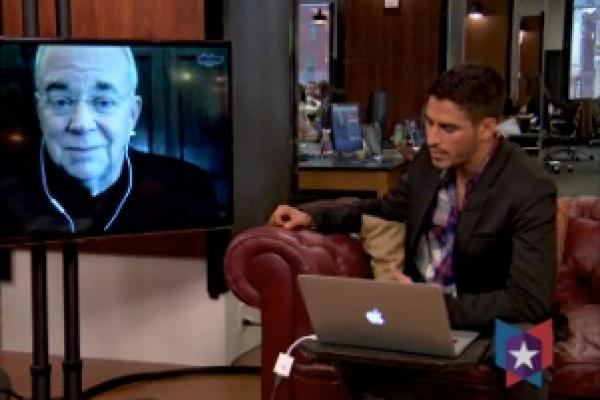Sojourners' CEO, the Rev. Jim Wallis, was a guest on Arianna Huffington's new online news channel, HuffPo Live, today to talk about the face of poverty in this heated election season and what has changed (or not) since the 2004 presidential election.
"More children than ever are poor," Wallis said. "From a religious point of view, that should be a top election issue. The highest poverty rate in half a century should be a fundamental moral issue."
"More and more of our friends are in poverty," Wallis told HuffPo Live host Ahmed Shihab-Eldin, "in the pews, in our workplaces, because so much is happening to so many people — through no fault of their own — and they are slipping below the poverty level."
There is a whole new wave of "suburban poverty," and many more of us know people who are poor than we did an election cycle ago, he said. There is a new "face" of poverty.
"Those who have been in poverty for a long time are now sinking into (because of the recession) what we call 'deep poverty.' Their annual incomes may be half of the poverty line," he said. "More and more people are now more desperately poor than they have ever been. But there are many new faces now. Poverty in the suburbs is rising dramatically.
"People who used to take their clothes to the Salvation Army to drop them off as donations, now are going to the thrift shops to get their own clothes. People who used to give donations to the hungry are now going to the food banks... people who have never been poor are all of a sudden poor," he said.
This new face of the poor and what the poverty line means to those who live beneath it are the subject of a forthcoming Sojourners film, The Line, which is set to be released Oct. 2.
The film, directed by Emmy-winning producer and documentary filmmaker Linda Midgett, in part tells the stories of a half-dozen Americans who are living with poverty — which the U.S. Census Bureau defines as a family of four living on an income of less than $23,050 per year.
They are the working poor, parents and pastors, veterans and volunteers, all folks whose slide beneath the "line" was preceded by health crises, accidents and family tragedies, natural disasters and corporate greed.
"People who have done nothing wrong," Wallis told Shihab-Eldin on Wednesday, "are suffering because other people who did things wrong to make this recession happen are doing very, very well."
Got something to say about what you're reading? We value your feedback!
